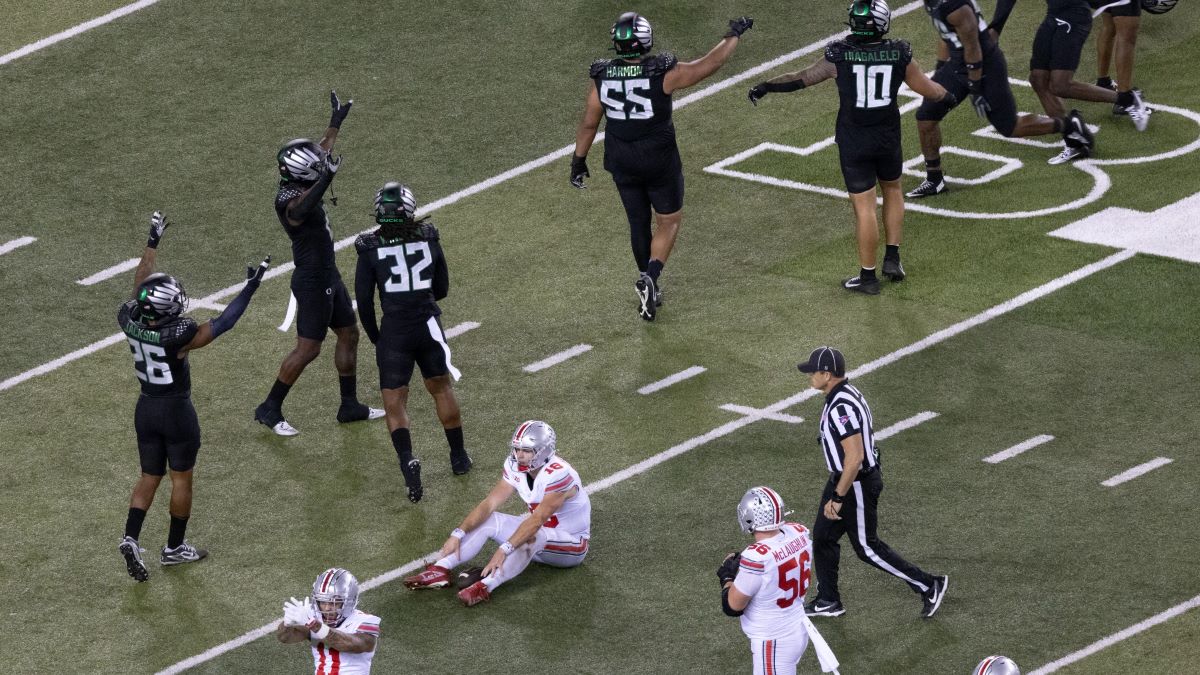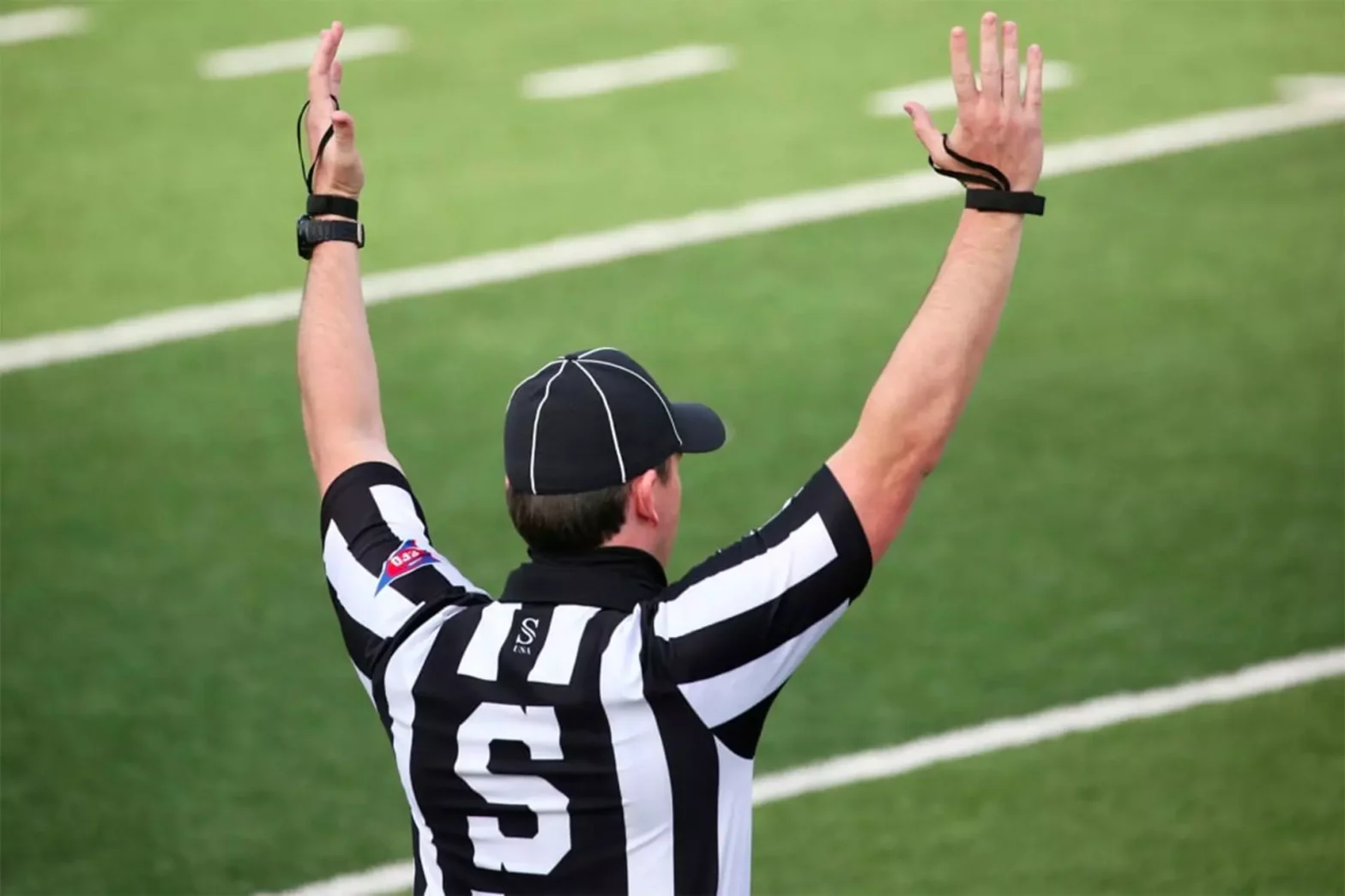The loophole that Oregon exploited against Ohio State might soon be closed.
Yahoo Sports’ Ross Dellenger reported on Tuesday that the NCAA Rules Committee is considering an in-season adjustment to how penalties for having an extra defender on the field are enforced.
This comes after Oregon strategically used the current rule to its advantage during a critical moment in their recent game against Ohio State.
According to Steve Shaw, the secretary rules editor for the NCAA Football Rules Committee, the group is actively reviewing the rule following Oregon’s controversial move.
During the second-to-last play of the game, Oregon deliberately placed a 12th defender on the field. This maneuver helped the Ducks force an incomplete pass.
Though Oregon was penalized five yards for the infraction, the penalty ultimately worked in their favor. The five yards kept Ohio State outside field goal range while the play drained the clock from 10 to six seconds.
On the following play, Ohio State quarterback Will Howard slid too late for a timeout, leaving the Buckeyes without enough time to attempt a game-winning field goal. Oregon secured the win as a result.
Oregon head coach Dan Lanning hinted that the decision to use an extra defender was premeditated.
During his weekly press conference on Monday, he alluded to the tactic being part of their game preparation.

“There was a timeout before that. We spend an inordinate amount of time on situations. There’s some situations that don’t show up very often in college football, but this is one that obviously was something that we had worked on. So you could see the result,” Lanning explained.
Currently, Rule 3, Section 5, Article 3 of the NCAA Rulebook defines having 12 players on defense as a live-ball foul. This means the game clock continues to run even when the penalty is enforced, which worked to Oregon’s advantage in this case.
Relevant NCAA Rules:
Approved Ruling 3-5-3
- Scenario I: If an incoming substitute enters the huddle or formation, and a player leaves the field within three seconds, it is considered legal. Beyond three seconds, it is a foul.
- Scenario II: If a team has 12 players in the defensive formation with no one attempting to leave the field, it is a live-ball foul, and the penalty is assessed during the play.
Shaw did not specify how the committee would address the rule, but an in-season adjustment could involve resetting the game clock to its original time after such penalties.
This change would discourage teams from exploiting the rule to drain the clock intentionally.
While the rule itself cannot be formally changed until the offseason, the Rules Committee has a history of issuing in-season interpretations to address situations where penalties unfairly benefit the offending team.
According to On3’s Pete Nakos, the adjustment to how the penalty is handled is expected to take effect this week.
